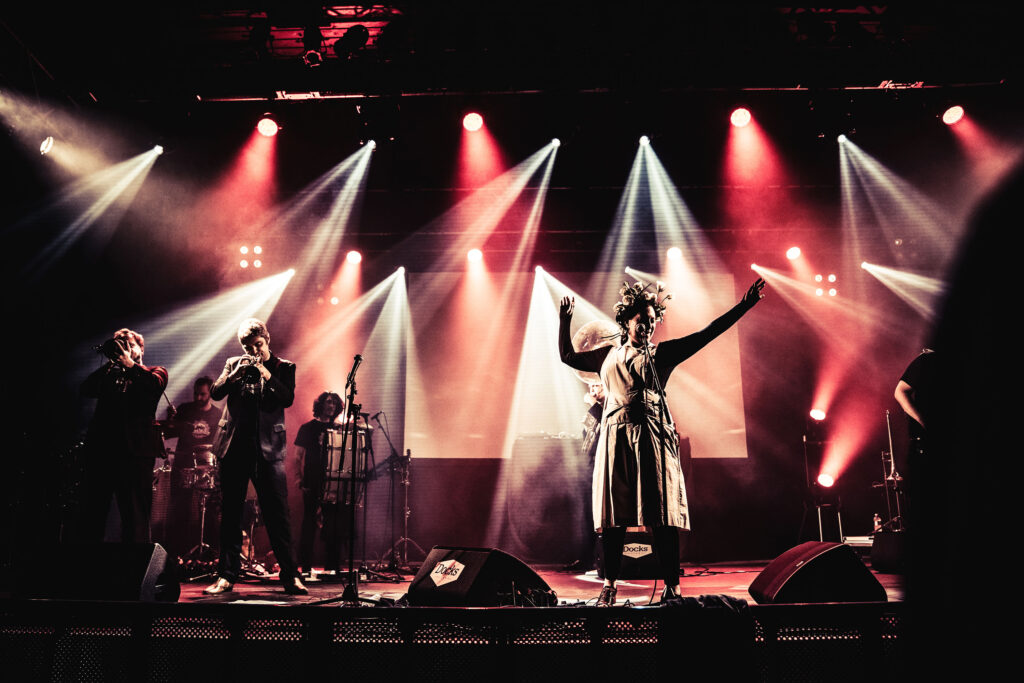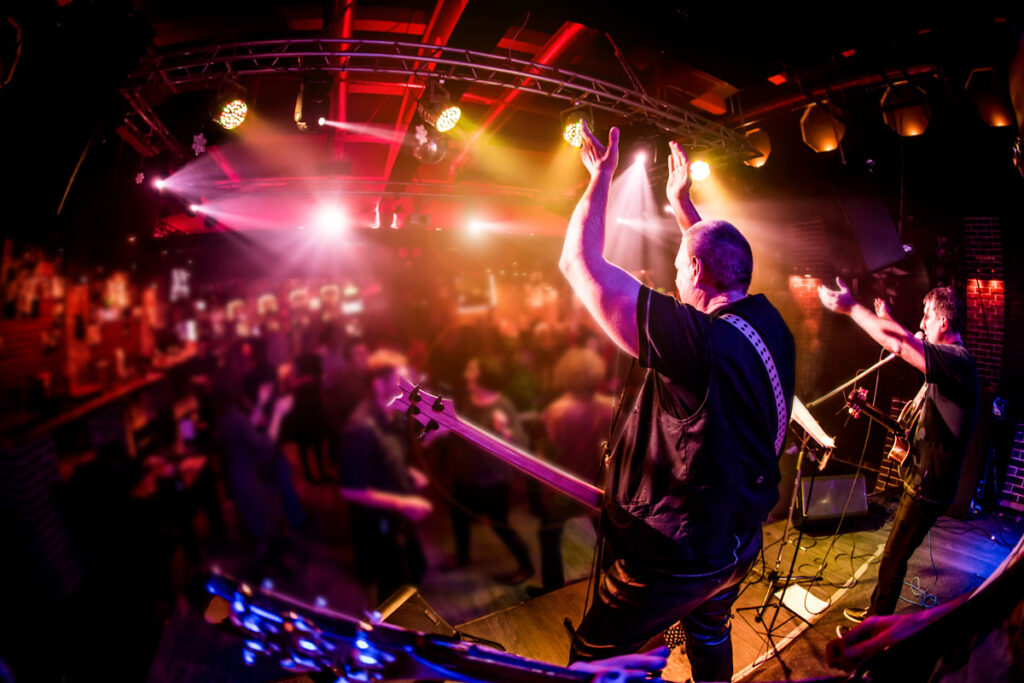Concerts in general
Apply for a licence
Apply here for a licence to use music at concerts
Licences
The concert tariff - Common Tariff (CT K): As a rule, the licence fee is set as a percentage of your ticket revenues. In certain cases, the fee may be calculated based on the costs connected with the use of the music (artists’ fees, travel and accommodation costs, rental of venues, instruments, and the PA system).
The percentage cannot exceed 10% of the ticket revenues or costs. The rate is lower if SUISA does not manage the rights to all the works performed – provided you deliver a complete list of works (set list) in good time. For more information see the Fact Sheet and the Tariff.
If you play commercially available sound recordings (CDs, MP3s, streaming, etc.), we will charge you an additional fee on behalf of SWISSPERFORM for the rights of the performing artists and producers (neighbouring rights).
Reduction for contract customers and members of trade associations
Contract customers and members of trade associations are entitled to a reduction of at least 10%.
The trade associations recognised by SUISA include SMPA, Petzi, SDJ, t. Theaterschaffen Schweiz.
Contract customers undertake to duly report all their concerts to us in good time and to furnish all relevant information and set lists.
Do I have to furnish the list of performed works to SUISA?
Yes. SUISA needs the list for the proper calculation of the fees and their distribution to the rightholders. Please send the list of the musical works performed no later than ten days after the performance.
How to proceed:
Send us the duly completed questionnaire together with your list of works. We will then issue the licence and invoice. Once your payment is received, we distribute the remuneration to the beneficiary composers, lyricists, and publishers.
Links
The following might also be of interest to you:
FAQ: Frequently asked questions
-
If you wish to perform protected music (or have it performed) in public, you must apply to SUISA for authorisation.
All forms are available at this link.
The forms should be completed and filed with SUISA no later than ten days after the concert. To calculate the royalties properly, SUISA needs to have a detailed list of the works performed, and a copy of your income and expenditures statement.
-
As a general rule, remuneration is charged under Common Tariff K if the public comes on purpose to listen to music. Therefore, shows, ballets and theatre performances, for example, can also be subject to CT K.
When music is played in the context of a dance or entertainment event, Common Tariff Hb, the tariff for dances and entertainment, will apply. CT Hb is applicable even if the concert or concert-like performance lasts less than one hour.
The decision to apply CT K or CT Hb cannot depend solely on the popularity of the performing artists, since popularity (and an artist's attraction) evolves much too quickly. In setting its rates, SUISA has to take other criteria into account, such as ticket prices, (concert) venue, type of advertising and other expenditure items.
If you are at doubt when preparing your budget, it is worthwhile consulting SUISA's customer services to find out which tariff is applicable.
-
No. Royalties for concerts are calculated as a percentage of concert revenues or of the costs of music use. The financial situation of each event is thus equitably taken into account. But it is also possible to conclude an annual contract with SUISA and pay the agreed instalments for the whole year. In exchange, SUISA will grant you a licence for all your events during the year. If you are interested, please contact our customer services.
-
SUISA normally calculates the remuneration based on a concert's revenues. In the following cases, however, the cost of the music use serves as the calculation basis:
- if the revenues cannot be established;
- if the costs are higher than the revenues and the customer has not prepared a budget, or if the customer assumes from the outset that the costs will have to be fully or partially covered by his own funds;
- charity events where the profit goes to the needy.


_022.jpg)
